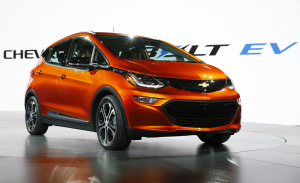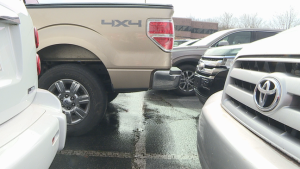
This was made crystal clear recently when General Motors said it will discontinue the Chevy Bolt, its electric sedan. It did the same with gas-powered vehicles years ago.
Sedans, crossovers, and mini-SUVs are what people drive in cities. Where roads are thin, families are small, and trips are short, you don’t need anything more. A city car will sit in a driveway 23 hours out of 24. This is what I call the mid-market, cars costing $25-35,000, plus tax, title, and license.
Contrast this with the suburban and exurban car markets, which U.S. makers do serve. They’re huge, like tanks. They’re ridiculously overpowered. When they’re electric, they weigh several tons. They destroy roads, and anything else they’re driven on.

I’m not going to moralize here. But the city market, which is most of the market, is being left to foreign nameplates. I own Toyota Corollas, the newest of them a hybrid. Korean brands like Hyundai and Kia are also popular. The irony is there are not yet electrics for the urban driver, who is most likely to want one. A range of 200 miles is no sacrifice when the average trip is under 20.
Because the Biden Administration chose not to tell American car makers what to make, we’re about to lose the bulk of our car market to China. China has a ton of great mid-market electrics right now, and Americans invested in some. Warren Buffett helped fund BYD, the biggest of these companies. GM has a joint venture with Wuling, which just introduced an electric car costing $4,300.
It’s possible that Toyota, Hyundai, and Volkswagen will become competitive in the American mid-market against the coming Chinese invasion. But it’s not possible that any American company will. Even our start-ups, like Rivian and Lucid, are just interested in luxury vehicles, the market’s cream.
When the business history of the 2020s is written, this will go down as an historic mistake.









